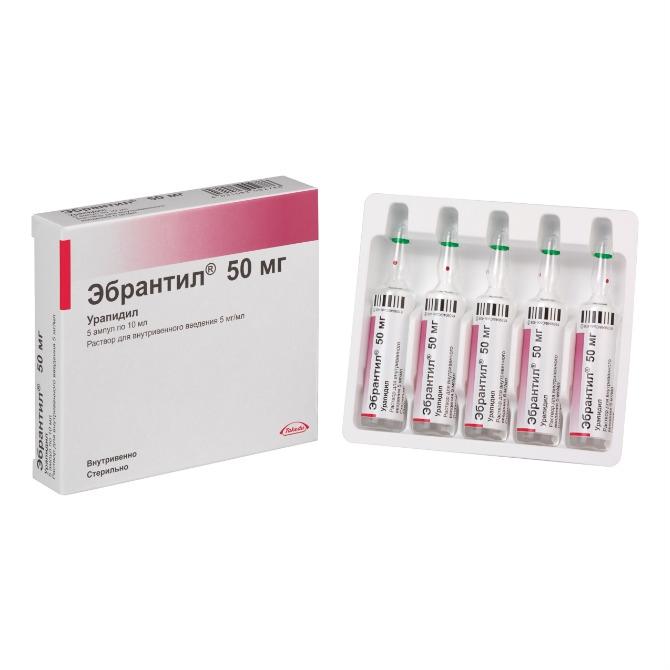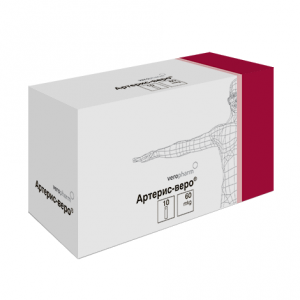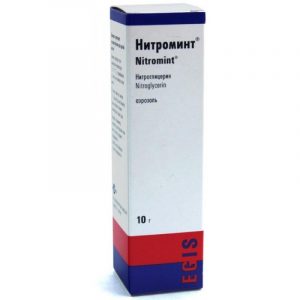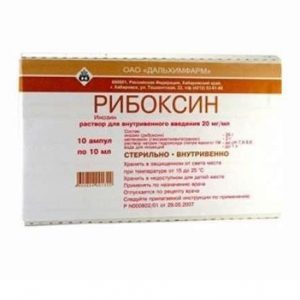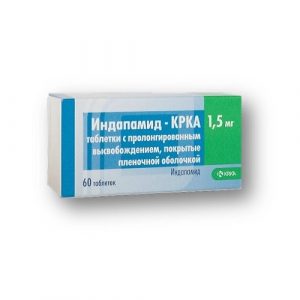Description
Release form
Intravenous solution.
Packing
5 ampoules of 10 ml.
Pharmacological action of
Ebrantil refers to drugs that block postsynaptic alpha-1-adrenergic receptors, thereby reducing peripheral resistance. In addition, Ebrantil regulates the central mechanism of maintaining vascular tone and has a weak beta-adrenergic blocking effect. Heart rate (HR), cardiac output do not change with its introduction. Low cardiac output may increase due to decreased vascular resistance. Orthostatic phenomena, as a rule, does not cause Ebrantil. Ebrantil blocks vasoconstriction caused by alpha-2 adrenergic receptors and does not cause reflex tachycardia due to vasodilation. Ebrantil balanced reduces systolic and diastolic blood pressure (BP), reducing peripheral resistance and does not cause reflex tachycardia. Urapidil reduces pre- and afterload on the heart, increases the efficiency of heart contraction, and thus, in the absence of arrhythmia, the drug increases the reduced cardiac output.
Contraindications
Hypersensitivity to the drug, aortic stenosis, open Botallov duct up to 18 years of age, pregnancy, lactation (efficacy and safety have not been established).
Precautions: advanced age, impaired liver and / or kidney function, hypovolemia.
Use during pregnancy and lactation
Contraindicated.
Special instructions
The simultaneous use of Ebrantil with other oral antihypertensive agents is possible.
Pediatric use
There are no clinical data on the use of the drug in children under 18 years of age.
Composition
1 ml. contains urapidil hydrochloride 5.47 mg (which corresponds to 5.0 mg of urapidil),
Excipients: propylene glycol sodium hydrogen phosphate sodium dihydrogen phosphate dihydrate water for injection.
Dosage and administration of
Ebrantil is administered intravenously by jet or by continuous infusion – lying
Hypertensive crisis, severe arterial hypertension, refractory hypertension.
1) Intravenous: 10-50 mg of the drug Ebrantil is slowly administered intravenously under the control of blood pressure (BP) / A decrease in blood pressure is expected within 5 minutes after administration. Depending on the therapeutic effect, repeated administration of the drug Ebrantil is possible.
2) Intravenous drip or continuous infusion using a perfusion pump.
Maintenance dose: average 9 mg / h, i.e. 250 mg of the drug Ebrantil (10 ampoules of 5 ml or 5 ampoules of 10 ml) in a 500 ml solution for infusion (1 mg = 44 drops ~ 2.2 ml).
The maximum allowable ratio is 4 mg of Ebrantil per 1 ml of infusion solution.
Recommended maximum starting rate: 2 mg / min,
The rate of drip administration depends on the patient’s blood pressure.
A drip infusion solution designed to maintain blood pressure is prepared as follows:
Usually 250 mg of the drug (10 ampoules of 5 ml or 5 ampoules of 10 ml each) Ebrantil is added to 500 ml of an infusion solution, for example, saline, 5 or 10 % solution of dextrose (glucose). If a perfusion pump is used to administer a maintenance dose, then 100 mg of the drug (4 ampoules of 5 ml or 2 ampoules of 10 ml) Ebrantil ® is injected into the syringe of the perfusion pump and diluted to 50 ml with physiological saline, 5 or 10% dextrose (glucose) solution.
Side effects
Most PEs are due to a sharp decrease in blood pressure.
Frequency: very often – more than 1/10 often – more than 1/100 and less than 1/10 infrequently – more than 1/1000 and less than 1/100 rarely – more than 1/10000 and less than 1/1000 very rarely – less than 1/10000 including individual messages.
From the CCC side: infrequently – palpitations, tachycardia, bradycardia, feeling of compression behind the sternum, shortness of breath, arrhythmias.
From the digestive system: often nausea, infrequently vomiting.
From the side of the central nervous system: often – dizziness, headache, fatigue very rarely – anxiety.
From the skin: infrequently – increased sweating. srdlk a feeling of compression behind the sternum, shortness of breath, arrhythmias.
From the digestive system: often nausea, infrequently vomiting.
From the side of the central nervous system: often – dizziness, headache, fatigue very rarely – anxiety.
From the skin: infrequently – increased sweating. srdlk a feeling of compression behind the sternum, shortness of breath, arrhythmias.
From the digestive system: often nausea, infrequently vomiting.
From the side of the central nervous system: often – dizziness, headache, fatigue very rarely – anxiety.
From the skin: infrequently – increased sweating.
Allergic reactions: rarely – skin itching, redness of the skin, exanthema.
From the genitourinary system: often – proteinuria rarely – nephropathy, nephrotic syndrome rarely – priapism.
Laboratory findings: very rarely – thrombocytopenia.
Drug Interactions
The antihypertensive effect of urapidil may be enhanced when taken together with alpha-blockers or other antihypertensive drugs, as well as with hypovolemia (nausea, vomiting) and with ethanol.
With the simultaneous administration of cimetidine, the maximum concentration of urapidil in blood plasma may increase by 15%.
Overdose
Symptoms: dizziness, orthostatic collapse, fatigue, inhibition.
Treatment: With a sharp drop in blood pressure, it is necessary to raise the patient’s feet and start infusion therapy to increase the volume of circulating blood. If these measures are ineffective, infusion of vasoconstrictors can be started under blood pressure control. In very rare cases, intravenous catecholamines (0.5 – 1.0 mg epinephrine (adrenaline) diluted in 10 ml saline) are required.
Storage conditions
Do not store above 30 ° C. Keep out of reach of children.
Shelf life
Shelf life – 2 years.
Deystvuyushtee substance
urapidil
Terms and conditions
prescription
dosage form
infusion solution
Possible product names
EBRANTIL 0.005 / ML 10ML N5 AMP RR V / V
Ebrantil 5 mg / ml 10 ml No. 5 ampl / v amp 5g / ml solution d / vv. 10ml Amp. X5 B (R)
Ebrantil ampoules 5 mg / ml 10 ml, 5 pcs.
Ebrantil iv solution 5mg / ml amp 10ml x 5
Takeda GmbH, Japan
